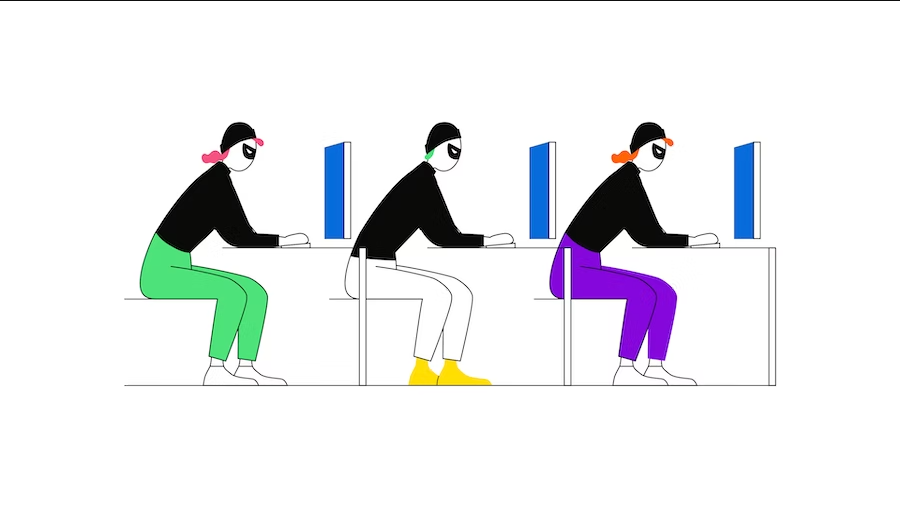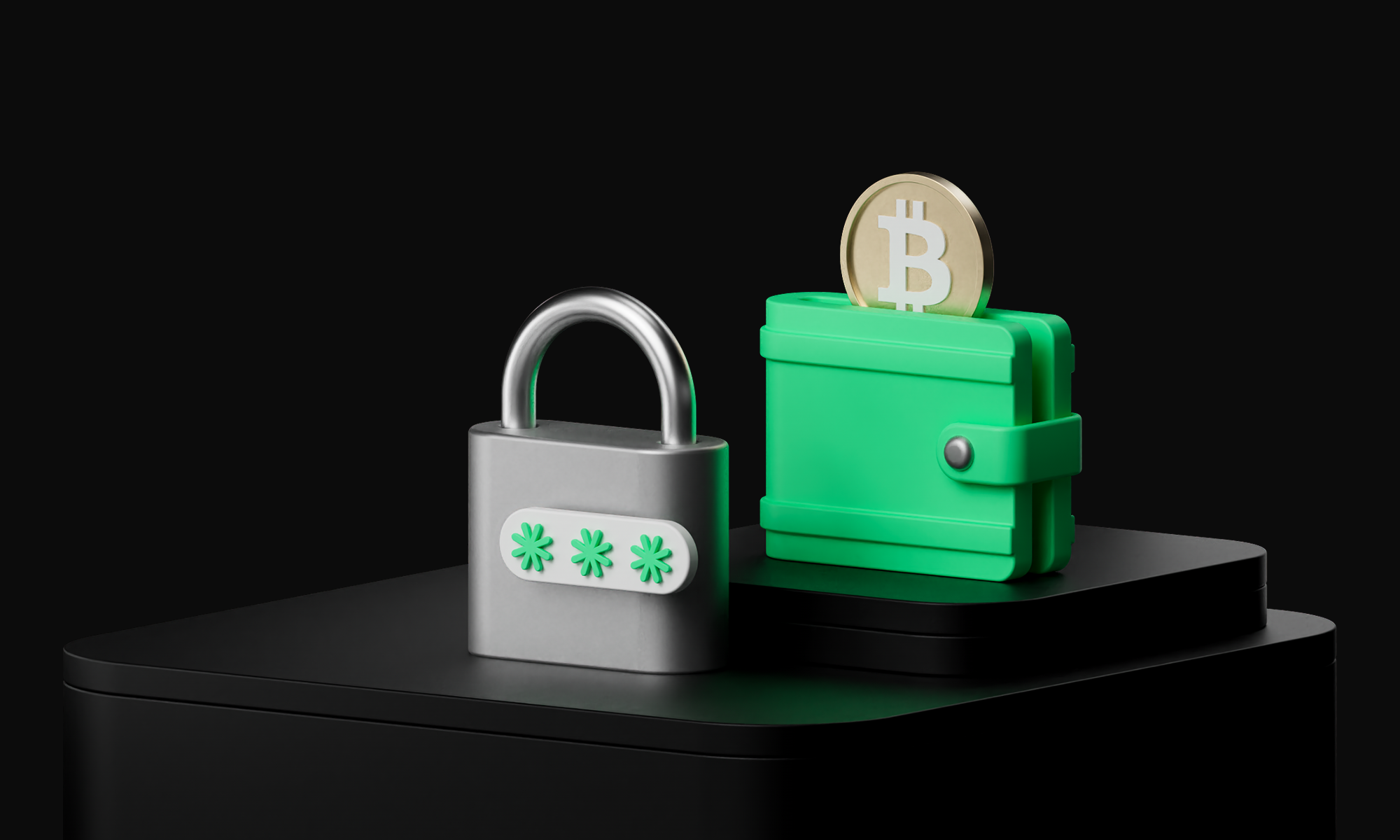Have you seen my Bitcoin wallet?
Though not technically a loss, we feel Pizza Day has earned its place on our list because something was lost after all: the chance to become a Bitcoin millionaire. So what happened exactly?
Programmer Laszlo Hanyecz paid 10,000 Bitcoins for two pizzas; an event known to this day as the Bitcoin Pizza Day, celebrated annually on May 22nd. The event marks the first real-world Bitcoin transaction in 2010. Hanyecz himself is completely unfazed by it, saying “It wasn’t like bitcoins had any value back then, so the idea of trading them for a pizza was incredibly cool.” And there we have it, the attitude reminiscent of a Buddhist monk! On top of the inspirational stance, he gifted the crypto community a nostalgic reminder of Bitcoin's journey and its potential to reshape finance. And today we would like to take you on a journey as well—into a land of lost treasures as well as learnings so you won’t ever have to tell your own tale of crypto despair.
The British computer engineer who lost his hard drive
In 2013, British resident James Howells accidentally disposed of a hard drive holding 7,500 Bitcoins, currently valued at over $258 million. Despite numerous desperate attempts to locate it in a landfill in New Port, Wales, the hard disk remains undiscovered. Howells' ordeal serves as a poignant reminder that trash can hold a lot of value. The landfill close to his house has not become a place of pilgrimage for the crypto community yet, but who knows what may happen in the future!
Stefan Thomas can’t pull the trigger
Stefan Thomas is a prominent figure in the cryptocurrency world, known for his contributions to the development and adoption of blockchain technology. He is particularly renowned for his involvement in the early days of Bitcoin and his subsequent work in the cryptocurrency space. Thomas is most famous for his unfortunate experience of losing access to a substantial amount of Bitcoin due to forgetting the password to his encrypted wallet. This wallet reportedly contained over 7,000 Bitcoins, worth millions of dollars at the time of its loss. This incident brought widespread attention to the importance of securely managing private keys and the irreversible nature of cryptocurrency transactions.
Despite this setback, Thomas continues to be active in the cryptocurrency community, advocating for improved security practices and contributing to the advancement of blockchain technology through his work and initiatives. Many have offered to unlock his IronKey hard drive, but Thomas couldn’t bring himself to make a move as of yet.
What happened to Satoshi Nakamoto’s Bitcoins?
Satoshi Nakamoto: the man or the men or women or the metaphor. Nobody really knows who or what is behind it. We only know that the pseudonymous creator of Bitcoin mined a significant number of Bitcoins in the early days of the cryptocurrency. However, Satoshi's activity gradually waned, and by around 2010, all communication ceased, leading to speculation about Satoshi's identity and the fate of their Bitcoin holdings.
This loss has significant implications for the Bitcoin ecosystem, as it effectively removes a portion of the total supply from circulation.
The mystery surrounding the fate of Satoshi's Bitcoins fuels speculation and intrigue within the cryptocurrency community. Some believe that Satoshi intentionally chose to disappear and relinquish control of their Bitcoin holdings to maintain the decentralised nature of the cryptocurrency. Others speculate that Satoshi's Bitcoins may never be moved, remaining dormant indefinitely. Whatever the case may be, the assumed loss of the private keys of Satoshi Nakamoto's Bitcoin address adds to the mystique surrounding the enigmatic figure and the early days of Bitcoin's creation.
How can you lose access to a Bitcoin wallet?
We know losing a physical wallet is rather painful and happens a lot, but here are some ways you could lose access to the different types of Bitcoin wallets too:
Issues with hot wallets
Forgetting the wallet password: If you forget the password to your Bitcoin wallet like Stefan Thomas, you may not be able to access the funds stored within it. Without the set of private keys corresponding to the Bitcoin address, spending those funds is impossible.
Losing the wallet file or wallet file backup: If you store your wallet in a Bitcoin node on your computer, losing this file can result in the loss of your Bitcoins. Always make sure to keep backups of your wallet files in secure locations.
Hacking or phishing: Hot wallets connected to the internet and custodial accounts are vulnerable to hacking or phishing attacks. If unauthorised individuals gain access to your wallet credentials, they may lock you out or steal your funds.
Issues with cold wallets
Hardware wallet damage: If you use a hardware wallet, like a Ledger or Trezor, and it gets damaged you could lose access to your digital assets if you don’t remember your seed phrase. It's absolutely crucial to have access to your seed phrase so you can access your wallet on a different device. Unless of course you threw it out by accident and it lives in a landfill now.
Failure to keep your seed phrase secure: Same as for hot wallets, if you do not take proper precautions to secure your private keys, they can become compromised. Never share your private keys with anyone and store them securely.
To avoid losing access to your Bitcoin wallet, it's essential to remember your seed phrase and keep it secure at all times, regularly back up your wallet files in case you are using a Bitcoin node wallet, and stay vigilant against scams and security threats. For a more in-depth look at this topic, read our comprehensive piece about private and public keys.
How custody works
Custody means a trusted third party is handling your wallet for you. In the real world, this could be someone you trust like your partner, and the results of this type of safeguarding may vary. In the digital space, it refers to a trusted third-party custodian, who secures digital assets like Bitcoin on behalf of individuals or institutions.
Custody services are designed to provide a secure and reliable way to store and manage assets, particularly for those who may not have the technical expertise or resources to do so themselves. If you are not a tech expert, it might be prudent to entrust a custodian with your valuable coins. So, contrary to physical wallets, the safest place for a digital wallet may not be with you directly!
The importance of a seed phrase

We have said it before, but we cannot stress it enough: The seed phrase is absolutely vital in cryptocurrency. Remember that it acts as a master backup for your wallet, serving crucial functions like:
Wallet recovery in case of loss or failure, so that access to your funds can be restored
It aids in inheritance planning, allowing heirs to access assets
So, if you want to avoid losing control of your digital funds or taking your Bitcoins to the grave with you, be sure to take the necessary precautions. Unless of course, you want to contribute to the reduction of the circulating supply.
What happens to lost Bitcoin wallets?
When Bitcoin wallets are lost due to forgotten passwords, misplaced keys, or other circumstances, the Bitcoins stored in those wallets become effectively inaccessible. Unlike traditional banking systems where lost passwords can often be reset or recovered through centralised mechanisms, the decentralised nature of Bitcoin means that there is no central authority or institution to intervene in such cases.
What are the implications of lost Bitcoin wallets?
Permanent loss: In most cases, when access to a Bitcoin wallet is lost, the Bitcoins controlled by it are effectively lost forever. That's because, without the keys, you don't have a way to prove to the network you are the owner of those coins (because you can't provide the signature required to unlock the funds).
Reduction in circulating supply: Lost Bitcoin wallets contribute to the reduction of the circulating supply of Bitcoins. Since the total supply of Bitcoin is capped at 21 million coins, every lost wallet decreases the available supply, which can impact the supply-demand dynamics and potentially lead to increased scarcity and value for remaining coins.
Security awareness: The loss of Bitcoin wallets serves as a reminder of the importance of proper security measures, such as securely storing private keys and implementing backup strategies. It highlights the need for individuals to take responsibility for safeguarding their digital assets and underscores the irreversible nature of cryptocurrency transactions.
Overall, the loss of Bitcoin wallets is a permanent and unfortunate consequence in the cryptocurrency space, emphasising the importance of careful management and protection of digital assets.
Can I recover a lost wallet?
Without the private key or backup, the short answer is—probably not. Recovering a lost Bitcoin wallet is often extremely challenging and, in many cases, impossible. Without the seed phrase or the corresponding private keys used to authenticate transactions and access funds, you cannot regain control of your wallet or retrieve the Bitcoins stored within it.
However, it's advisable to exhaust all possible avenues for recovery, such as retracing your steps, consulting with experts or support forums, and attempting to recall or reconstruct any relevant information. In some rare cases, specialised data recovery services or software may offer limited assistance, but success is not guaranteed and there are many scammers out there. Prevention is key, so it's crucial to maintain secure backups of your private keys and passwords to avoid the risk of losing access to your Bitcoin wallet in the first place.
Watch out for scammers advertising asset recovery services

Self-custody of cryptocurrency funds is meant to prevent third parties or intermediaries from being able to create backdoors or access your money for you. So beware of anyone claiming they can recover your wallet for you, they most likely cannot. Be very careful who you trust as most companies in this sector are not licensed or regulated.
How to protect yourself
To safeguard against the loss of a cryptocurrency wallet, it's essential to prioritise security and implement preventive measures. If you are using a node wallet, regularly back up your wallet.dat file and store it securely in multiple locations. If you are using an app wallet, keep your private keys safe and access to your device restricted. Keep it all out of the reach of your children, pet lizards and imaginary friends (the latter may be fine).
Enable two-factor authentication (2FA) for added security when accessing your custodial accounts. Practise good security hygiene by keeping your devices and software updated, using strong, unique passwords, and avoiding phishing scams. Educate yourself about common security threats and stay informed about best practices in the cryptocurrency space.
Lastly, plan for inheritance by ensuring trusted individuals or beneficiaries have access to the necessary information to recover your wallet in case of unforeseen circumstances. By following these steps, you can significantly reduce the risk of losing access to your cryptocurrency wallet and protect your digital assets from loss or theft. Storing your Bitcoins safely is the first step, but remembering how to access them is of course equally important.
What’s the gist? Protect your seed phrase at all costs!
Given its critical role in ensuring the security, accessibility, and ownership of your cryptocurrency holdings, you may even consider tattooing your seed phrase on your body (though not advisable!). However, if this type of safeguarding is not for you, it is essential to follow these best practices for its management:
Keep it safe: Keep your seed phrase in a safe and confidential offline location. Never share it with anyone you do not trust explicitly.
Make copies: Create multiple copies of your seed phrase and store them in separate secure locations to guard against physical loss or damage.
Memorise carefully: If you choose to memorise your seed phrase, do so diligently, and consider using memory aids. Be aware that memorisation alone may not provide adequate protection against unforeseen events.
In summary, a seed phrase is the ultimate key to your cryptocurrency holdings, and its safekeeping is paramount for your financial security and peace of mind.
In any case, if you don’t possess the technical knowledge or the necessary tools consider using a custodian to keep your wallet safe. Whatever you do, just don’t become famous for losing your wallet!
Are you ready for the Bitcoin halving?
If you want to stay informed and be well prepared for the next big crypto event, the Bitcoin halving, follow our Bitcoin halving countdown for the latest Bitcoin news, expert insights, announcements, and price developments.
Disclaimer
This article does not constitute investment advice, nor is it an offer or invitation to purchase any digital assets. This article is for general purposes of information only and no representation or warranty, either expressed or implied, is made as to, and no reliance should be placed on, the fairness, accuracy, completeness or correctness of this article or opinions contained herein. Investing carries risks. Make sure to conduct your own research before making any investment.
 Commodities* Invest in commodities 24/7
Commodities* Invest in commodities 24/7 BITCOIN What to know when you are just starting to invest
BITCOIN What to know when you are just starting to invest ASSET MANAGEMENT Your investment, your assets: Why your money is safe with Bitpanda
ASSET MANAGEMENT Your investment, your assets: Why your money is safe with Bitpanda COUNTDOWNBitcoin Halving Countdown 2024
COUNTDOWNBitcoin Halving Countdown 2024 ACADEMYWhat is the Bitcoin halving?
ACADEMYWhat is the Bitcoin halving?








